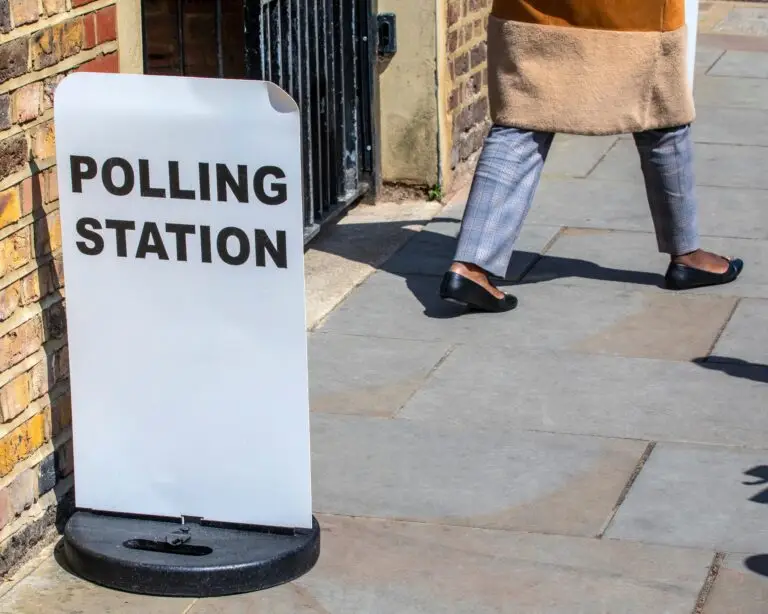Today (27/03/2023), Humza Yousaf was announced as the new Leader of the SNP, and soon – after a formality of a vote in Holyrood – the new First Minister of Scotland. At 37 years old, this makes Yousaf the only First Minister from an ethnic minority background, and the first Muslim to lead a major UK party.
The current Cabinet Secretary for Health beat out the current Cabinet Secretary for Finance, Kate Forbes, with only a 3,777 difference in first preference votes. The final results saw Ash Regan eliminated in the first round, and Yousaf taking home 52.1% of the votes to Forbes’ 47.9% in the second round – making him the new Leader. Turnout sat at 70%.
Very much the continuity candidate, Yousaf ran his campaign by promising to continue a centre-left, socially progressive, programme for Government, based on progression of LGBT+ and minority rights; championing of women’s health and reproductive rights; and the commitment to look at a wealth tax to fund initiatives designed to tackle the cost-of-living crisis and child poverty.
A seasoned politician, having served in Government since 2012, Yousaf enjoyed the support of the vast majority of SNP MSPs and MPs, and is expected to continue the current Scottish Government power sharing arrangement with the Scottish Greens. We can expect a reshuffle of the Government to follow following Nicola Sturgeon’s official step down as First Minister on Tuesday.
Key Issues
Following a tumultuous leadership election which saw Yousaf’s record in Government attacked by his rival, Kate Forbes, Yousaf will be keen to steady the ship and show that he can hit the ground running by progressing key pieces of policy. Below, we outline three areas likely to be his top priorities in the coming weeks and months:
The Deposit Return Scheme
Scotland’s Deposit Return Scheme was planned to be a flagship and ambitious piece of environmental legislation, designed to have a transformative impact on recycling rates across the country. However, there have been concerns – largely from small businesses across Scotland – that the scheme’s administrator, Circularity Scotland, has failed to give the guidance and clarity needed to businesses to allow them to fully participate in the scheme.
There are also fears that the UK Parliament will block the scheme, which requires an exemption to the Internal Market Act for it to come into law. This exemption would effectively relax the trade rules within the internal market, allowing prices to be raised by the 20p required for the deposit. Alastair Jack, the Scottish Secretary in Westminster, has claimed that this would be an unfair price rise and that the bar for an ‘opt-out’ is very high. Such a move to block the scheme would further weaken relationships between Holyrood and Westminster – making it an issue Yousaf is keen to avoid.
Elsewhere, over 70% of the Scottish public support the scheme, and big drink manufacturers, including Irn Bru makers AG-Barr, Coca Cola, and PepsiCo have all urged the Scottish Government to progress as planned – pointing not only the environmental benefits, but also to the cost invested by manufacturers to prepare for the scheme. There is also very little political will in Scotland to see the scheme fail, with Yousaf favouring a ‘grace period’ for small businesses, rather than reform or scrapping it altogether. Expect this to be a key focus in the coming weeks.
NHS waiting times
As the current Cabinet Secretary for Health, Humza Yousaf knows all to well about the pressures facing Scotland’s NHS. Since Covid-19, the number of people on an NHS waiting list has risen to the highest figure ever, sitting at 625,000, and he has been under increasing pressure to get these figures under control – even facing calls from the opposition for his resignation.
His first step as Leader will have to be a reshuffle – and the highest priority on his agenda will be finding an experienced ‘safe pair of hands’ to take over the health brief, before turning the Government’s attention to driving down waiting times and steadying the ship. He’s already managed to avert a nurses strike by securing a new pay deal, but he’ll also have to factor in the recruitment challenge facing the entire sector and the difficulties post-Brexit that Scotland faces attracting medical talent to Scotland. Solutions will have to come quickly too – the NHS remains one of the single biggest issues for Scottish voters and will be a deciding factor in whether he can gain their trust as First Minister now, and into the next Holyrood and General Elections.
Tackling poverty
Poverty levels in Scotland had been on the decline for many years, however the Covid-19 pandemic and the cost-of-living crisis have seen rates rise again, with child poverty rates now back at the same level as when the SNP first took power almost sixteen years ago. For a party that prides itself on the introduction of policies including the Scottish Child Payment, free bus travel for those under the age of 22, free school meals and the Scottish Welfare Fund, this news will have caused alarm bells to ring, and will have given opposition parties much to focus on in the lead up to an election.
That might be why Humza Yousaf has said that his first external meeting will be to convene a summit of all the poverty organisations in Scotland, to discuss potential short and long-term policy solutions designed to get rates back down. As part of this, Yousaf has said he will seriously consider a wealth tax, with the funds generated being invested back into tackling child poverty and the cost-of-living crisis. He has also said that he’d like to see the Scottish public having an equity stake in ScotWind – a leasing process that allows energy developers to lease land and sea in Scotland to build windfarms in Scottish waters – thereby allowing funds raised from this to be reinvested back into the public purse, for the direct benefit of the most vulnerable in society.
PLMR Analysis: What does this mean for Labour and the Westminster election?
The first question on most people’s lips – aside from what this means for Scotland – is how will this result impact the next Westminster General Election. As I type, there are already opinion pieces being published on why this result is a good thing for Labour, and a bad thing for independence (or vice-versa). The truth, as with most things, is that it will take some time to tell which way the wind will blow.
Yousaf follows a very competent and well known First Minister who won many votes based on her personal popularity. But she also lost many votes because of her unpopularity too. Scotland remains a country divided down the middle on independence, and for many voters, not much will change. Those that support independence will vote the SNP. Those that don’t will choose between Labour and the Conservatives, effectively splitting the Unionist vote.
It is those voters who are either undecided, or who vote for the SNP in the Holyrood election because they believe them to be the best party for Scotland, but who turn to Labour in a General Election because they believe them to be the best for the UK, who really matter. These are the voters that Yousaf will have to win over, showing them that the SNP under his leadership is more competent than a Labour party in waiting. And he has an uphill battle – his record was roundly trashed by his opponent, Kate Forbes, and he has big challenges to overcome in the form of NHS waiting times, poverty rates and more. Yousaf will need to make his first moments as First Minister count, ensuring his reshuffle appoints the most talented MSPs to his front bench, in a way that unites his party after a tumultuous leadership election. Any sign of the SNP being at war cannot continue, as this would be a gift to Labour.
And for those who think this result will only help Labour, don’t be so sure. We often forget about why support for Labour declined in Scotland in the first place, but it’s important to remember that many of the same issues that led to that decline still remain. The talent pipeline for Scottish Labour is not strong. Anas Sarwar, the Scottish Labour Leader, is their most effective communicator and he is undoubtedly their most talented leader in many years– but he doesn’t always hit the mark against SNP frontbenchers. This is a problem for Keir Starmer, because his man in Scotland doesn’t necessarily have the charisma to turn the unrest amongst the SNP into votes. We have to remember, the single biggest exposure Scottish voters have to Labour is not through the UK party, it is through the Scottish Labour MSPs they see on the news and in their constituencies every day. How they are perceived is extremely important for the UK Labour Party’s success.
And for Keir Starmer himself, he needs to grapple with how the UK Labour Party is perceived in Scotland. If you ask Scottish voters what they think, the answer is startingly similar to five or ten years ago: “Labour just don’t get Scotland”. For Labour to truly take advantage of the disharmony within the SNP, they need to connect with the Scottish voter. They need to understand that simply visiting Scotland, drinking an Irn Bru, and standing outside a wind farm isn’t enough. Policies announced need to have a direct benefit for the Scottish people. Rhetoric needs to move away from independence and Labour’s opposition to it, with an overall understanding that while independence remains a hot button issue, what most Scots actually care about is how Labour will make life better for them. If Starmer wants to see a ‘tartan wall’ at the next General election, he needs to put the funding and time into Scottish Labour to make it a winning force again, and he needs to persuade Scottish voters that Scotland isn’t just an afterthought in his quest to become Prime Minister. And he needs to do all this before the SNP get to grips with their party’s problems.
Ultimately, this comes down to which party gets their act together first. An SNP used to power, but with a new Leader who faces the challenge of uniting his party and bringing new energy to a stale Scottish Government, or a Labour Party that has the chance to bring new energy to Scotland, but which has -in recent history at least – lacked the insight into what matters to Scotland’s people to make that new energy count.





